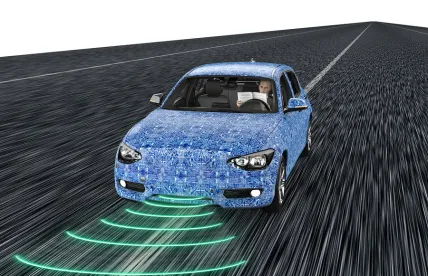We’re in the midst of a rapid evolution not only in the way drivers operate their vehicles, but also in the operations, compliance, go-to-market strategy and cyber preparedness of the entire automotive industry. More than 70 million connected cars will be on the road by 2023, as predicted by IHS Markit, and autonomous vehicles aren’t far behind with current models equipped with semi-autonomous functionality, including auto-steering, self-parking, autonomous lane changing and collision-avoidance features.
As these smarter, interactive and self-sufficient machines change our entire view of transportation and mobility, industry players are carefully weighing their competitive pursuits and market moves against the new regulations and industry standards coming down the pike.
Against this backdrop, in October 2017, we released a survey of leading automakers, suppliers, startups, investors and technology companies on the business and legal issues impacting the development of connected cars and autonomous vehicles. The perspectives and attitudes of respondents suggest that many automotive and technology companies are already forging ahead in spite of lingering regulatory uncertainty and other challenges. However, there remain barriers to these technologies reaching their growth potential and gaining acceptance by the general public.
According to the survey, two things are for certain: 1) traditional automakers and suppliers have been joined by emerging and mature technology companies in the race to fill the streets with driverless cars; and 2) those that continue to innovate and build technological capabilities toward full connectivity and autonomy will be the most successful in this arena. This is the first part of a two-part series reviewing the survey.
Obstacles to Growth

While the terms “connected cars” and “autonomous vehicles” are often used interchangeably, they face different obstacles to growth, partly because the respective technologies are at different stages of development and implementation.
Connected car technologies are already prevalent today with increasing ease of access, convenience and affordability.

Not unlike smartphones and other connected devices, cybersecurity and privacy are a significant concern for connected cars, with the largest percentage of respondents (31 percent) selecting this as the biggest obstacle to adoption.
Alternatively, safety (35 percent) and consumer readiness to adopt (24 percent) topped the list of perceived barriers for autonomous vehicles.
“I expect automakers will develop autonomous capabilities in ways that comply with existing laws first (e.g., adaptive cruise control, lane assist, auto-brake), so even though the cars could be fully autonomous, it will take five to 10 years of people using these autonomous-lite features before they are comfortable with the idea of full autonomy.” – Banking Industry Respondent
Impact of New Entrants
The business strategies and operations of traditional automakers and suppliers are clearly being influenced by emerging and established technology companies that see opportunities at every point along the supply chain. Only 15 percent of respondents believe that accelerated technological innovation and new industry entrants are not disrupting traditional automotive supply chains.

These emerging players are increasingly understood and viewed by traditional automakers and suppliers as direct competitors, but also as potential collaborators, signaling a growing acceptance of these new entrants in the automotive space.
A Stronger Regulatory Framework
Given the significant financial and safety stakes, the sophisticated nature of the technology and the likely pervasive impact on society, it is not efficient for 50 different states to dictate the development of connected cars and autonomous vehicles. Amid a growing patchwork of state requirements, lawmakers in Washington are catching up and close to setting the course for future development. The legislative packages working their way through Congress would address the deployment of self-driving cars and preempt state laws. The U.S. Department of Transportation and the National Highway Traffic Safety Administration also released new federal guidance in September 2017.
These are welcome developments for an industry seeking greater regulatory certainty and an alternative to differing state requirements. Nearly two-thirds of respondents (62 percent) believe that nationally consistent rules from the federal government are the best way to regulate connected cars and autonomous vehicles.

“Developing and fielding autonomous vehicle technology is going to become increasingly dependent on support of the federal government to develop national regulations.” – Automotive Supplier Respondent




 />i
/>i

